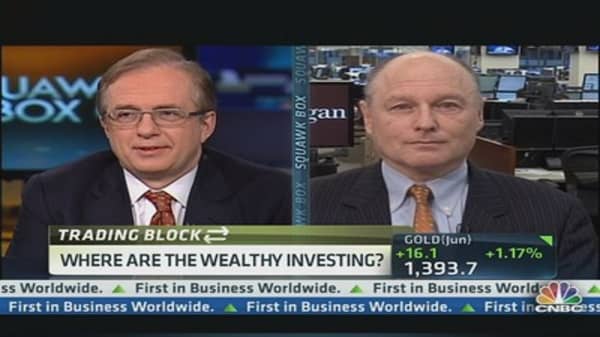The Federal Reserve is still months away from beginning the process of scaling back its $85 billion a month bond-buying program, JPMorgan Chase's chief economist told CNBC on Wednesday, ahead of Fed Chairman Ben Bernanke's economic testimony on Capitol Hill.
"Bernanke is pretty much going to keep the course here and tell us the Fed is open-minded. It's feeling a little better about the economy," Bruce Kasman said in a "Squawk Box" interview. "But he's not going to send any signal about tapering or anything broad on monetary policy at this stage."
The Dow Jones Industrial Average rose for a 19th-straight Tuesday after St. Louis Fed President James Bullard and New York Fed President William Dudley dampened speculation that the central bank was ready to consider slowing its asset purchases. There have been some voices on the other side, including from Dallas Fed President Richard Fisher, who told "Squawk" on Monday that the Fed should start scaling back the purchases of mortgage-backed securities.
(Read More: Stocks Climb on Dovish Fed Comments; Bernanke Up Next)
"The biggest effect of the Fed is not yet on economic growth, not yet on jobs. It's really been on reduction in uncertainty. And that's helped to lift asset values higher," said Stephen Bodurtha, head of investments for North America at Citi Private Bank, which oversees $270 billion of client assets.
Besides hearing from directly from Bernanke on Wednesday morning, investors in the afternoon will be parsing the minutes from the Fed's April 30-May 1 Federal Open Market Committee (FOMC) meeting.
(Read More: Bernanke Expected to Deliver Dovish Message)
"If we're right and the Fed is beginning to taper towards the end of the year, we think the end of the year, 10 year yields are going to be 2.5 percent," Kasman said.
The current yield on a 10 year Treasury is about 1.9 percent.
By year end, Bodurtha said, "We could see bond yields, the 10 year, in the low mid-2s. And 2.5 to 3 percent on GDP."
Kasman was less optimistic about economic growth. "In our forecast, we're still absorbing a fiscal drag, so I think the U.S. will be grinding somewhere on the mid-2s on GDP."
U.S. gross domestic product grew at an annual rate of 2.5 percent in the first quarter, but that was lower than economists had expected.




